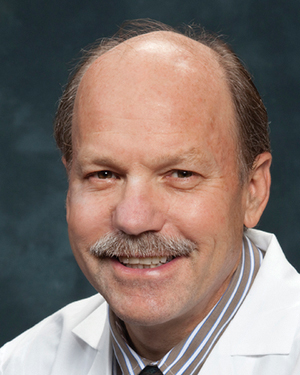By David Corriveau
While diplomats from the United States and other western countries struggled with their counterparts from Iran to find common ground on the latter nation’s nuclear capability in the fall of 2013, Nicholas Hill, 1973 graduate of Dartmouth's medical school, watched Iranian pulmonologists help a patient to breathe easier—using techniques he had shown one of them two years before.
“A patient happened to come in in respiratory distress – acute exacerbation of COPD—while I was there,” Hill recalled a few weeks after returning to the Tufts University School of Medicine in Boston from the sixth semi-annual International Congress on Pulmonary Diseases, Intensive Care, and Tuberculosis in the Iranian capital of Tehran. “I was gratified to see that the things I was bringing over were being instituted a bit.”

Hill, chief of Tufts’ Pulmonary and Critical Care Division, started sharing ideas and strategies with Iranian colleagues in 2011, while serving as president of the American Thoracic Society (ATC). At that year’s International Congress, he signed a memorandum of cooperation between ATS and Iran’s National Research Institute on Tuberculosis and Lung Diseases (NRITLD).
And in 2012, NRITLD pulmonologist Atefeh Fakharian visited Tufts to observe Hill’s research on treating patients with chronic lung conditions with non-invasive ventilation: assisting ventilation with a respirator mask instead of an invasive airway in the throat. That led to Hill and Fakharian co-publishing an editorial on the state of non-invasive treatments in Tanaffos, a peer-reviewed journal of the NRITLD.
None of which Hill imagined himself doing while he pursued his MD at Dartmouth Medical School in the early 1970s—at least not in a country with which the U.S. would cut most ties later that decade, and with which it would remain at odds for nearly 35 years. For Hill, all that changed when he was invited to represent the ATS at the fifth International Congress in Iran in 2011.
Partnering with countries like Iran is important to improve world health, says Hill. “For example, research on resistant tuberculosis is something the Iranians lead the world in, because they see cases of resistant TB quite often among refugees from neighboring countries like Afghanistan. Because of the threat such organisms pose to health worldwide, political considerations must take a back seat to these kinds of challenges. Iranian clinician-researchers are very receptive to collaborating on these issues.”
During his return trip as president emeritus of ATS in 2013, he saw further evidence of the thaw between the two countries. “There was a sense of optimism about working more with the rest of the world,” Hill said. “There’s so much more we can and should do together.”